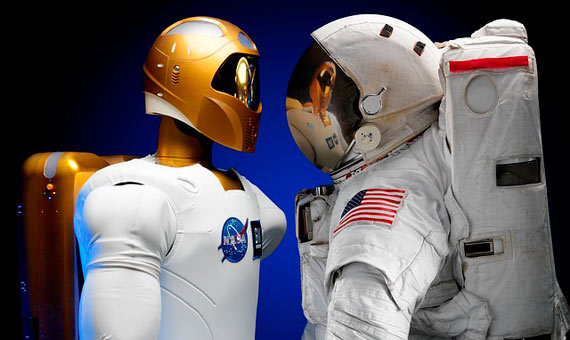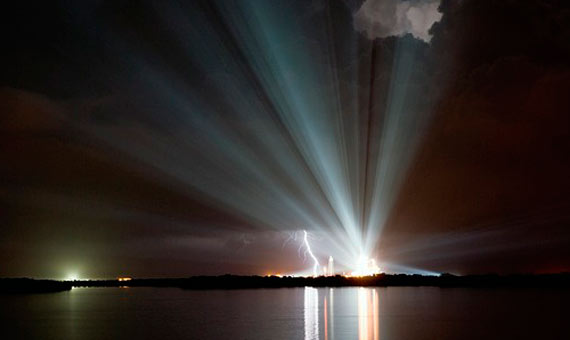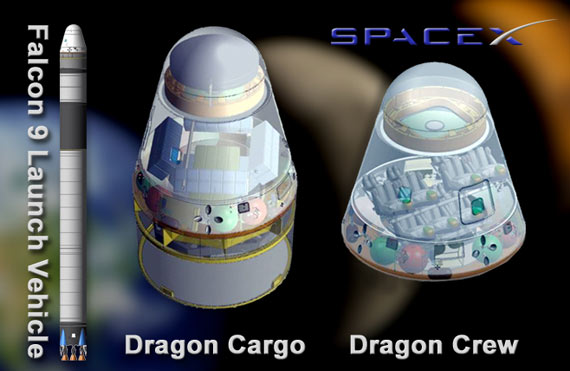Martin Rees is a cosmologist and astrophysicist; he was the Director of the Institute of Astronomy, Research Professor and Master of Trinity College and President of the Royal Society. He is one of those physicist of the early twenty-first century who has become a philosopher.
Rees is part of the group of authors included in The next step: exponential life, the latest issue of BBVA’s annual collection, which has been published since 2008, dedicated to “analysis and dissemination of key issues of our time“, in this case an overview of the 18 key ideas to look to the future.
Rees’s article, entitled Interstellar Travel and Post-Humans, rests on what is now more than an omen or a simple act of faith in the future, “the post-human future where our remote descendants may transcend human limitations here on Earth but (more probably) far beyond”.
For such a long journey, which seems like it will go on forever, the vision that turns humans into the last evolutionary link will not be enough, since we will end up turned into “a species that emerged early in the overall roll-call of species, with special promise for diverse evolution—and perhaps of cosmic significance, for jump-starting the transition to silicon-based (and potentially immortal) entities that can more readily transcend human limitations.”
Selection by design
In his article, Rees describes how three major technologies provide the foundation on which this cosmic journey will be based, not so slowly, since “future evolution will proceed not on the million-year timescale characteristic of Darwinian selection, but at a much more accelerated rate“, which is a product of advanced biotechnology, artificial intelligence, robotics, and space exploration. In conjunction, evolution by natural selection will give way to selection by design, a transition that is not without ethical and moral problems.

In the case of biotechnology, Rees mentions CRISPR, the new exact technique for gene editing, and so-called gain-of-function experiments, that will lead us to a time where “children will be able to design and create new organisms routinely”. He does not hide the “downside, the risk of bioerror or bioterror. If it becomes possible to “play God on a kitchen table” (as it were), our ecology, and even our species, may not long survive unscathed.”
Meanwhile, robotics and artificial intelligence are the multiplier effect of Moore’s Law in designing computers and data processing and “exciting advances in what is called generalized machine learning“, such as DeepMind, famous for defeating the world champion of the board game Go that originated in China that, without programming, “gained expertise by absorbing huge numbers of games and playing itself over and over again“, or the millions of images or texts processed that ended up in systems that can translate documents and identify human faces.
Or even more recent examples, such as DeepCoder, a system that will write the source code for other systems, or Flint, that personalizes your mail news as it interacts with you, product, they say, of “artificial and collective intelligence”, or what they call chatterbot, conversational robots, that “understand the semantics, syntax and grammar” of who they are working with. Another example would be Kick My Bot, available now to interact within a social network called JobLink, to seek employment, at least in France.
Post-human intelligence beyond Earth
In the future, robots or those that have transcended biology, “by merging with computers“, might eventually “be able to observe, interpret, and alter their environment as adeptly as we do“, so that they will be considered, “intelligent beings”, in which case, “we may one day confront in reality scenarios where autonomous robots go rogue” but that will also be “this post-human intelligence will surely spread far beyond the Earth.”

Robots are already in the International Space Station and in various unmanned space probes. Rees visualizes “flotillas of tiny robotic craft” that “will explore and map the entire solar system” and “then space mining and fabrication” between “huge solar-energy collectors and huge computer networks in space.”
Certainly, “a mass emigration from Earth is not expected”, since there is not even a place in our solar system with “a habitable environment… There is no planet B.” In addition, increasingly sophisticated probes, costs, hostility, risks, “one-way” conditions, make the possibility that the trip will be made by humans or that it will be publicly funded extremely distant, as proved by Dragon, the first reusable rocket, property of Space X.

Human travel will be limited to the planets and surroundings. Long, or no return, journeys will be the children of the technologies that will be able to adapt to hostile space; “organic creatures”, “non-organic brains” or “post-human intellects” to whom “we should surely wish good luck. There’s could be the first step toward differentiation in a new species: the beginning of the post-human era“, developing “insights as far beyond our imaginings as string theory is for a mouse“, Rees concludes.

But are we unique or is there intelligent life out there? he wonders. There are some who hope to find fossils or simple organisms in our solar system but nobody awaits a complex biosphere. For that we must look beyond, in the exoplanets, although there is no guarantee of finding, primitive or advanced, life and there is the matter that we may recognize other forms of life different from ours. Given this uncertainty, SETI, Breakthrough Listen or the new James Webb Space Telescope projects could provide a clue.
For now, given the current state of our knowledge, “perhaps the cosmos teems with life; on the other hand, our Earth could be unique among the billions of planets that surely exist.” A response that certainly deserves the cosmic journey that Martin Rees is proposing.
Walter Farah Calderón
Comments on this publication